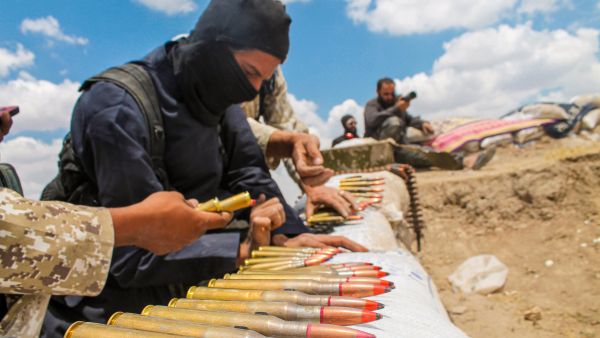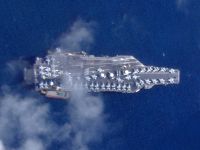ALBAWABA - The Kurdish-led administration in northeast Syria announced Sunday that it will initiate the process of trying thousands of suspected foreign ISIS fighters who have been held without charge for years.
International media outlets reported that the Kurdish administration currently detains up to 10,000 suspected ISIS fighters, along with their families, in detention facilities and camps respectively.
To address this issue, the Kurdish-led administration released a statement declaring its intention to conduct "open, free, and transparent trials" for the detainees.
Since the battle of Baghouz, the administration has been urging the international community to fulfill its obligations in finding a resolution for the captured ISIS militants. Previous initiatives proposing the establishment of an international court have been put forward.
The failure to bring these militants before a court is viewed by the Kurdish administration as a violation of international laws and conventions.
In these trials, the Kurdish-led administration plans to invite rights groups and the US-led coalition, which supported the Kurdish-led forces in ousting ISIS from northern Syrian territories, to attend.
However, the matter of foreign fighters has proven to be contentious for many countries, which are reluctant to repatriate their nationals due to concerns about political backlash and the effectiveness of their counter-terrorism laws in guaranteeing lengthy prison sentences.
The move by the Kurdish-led administration raised questions about the legal basis of these trials and the consent of the Syrian government.
Presently, overcrowded prisons in Syria's northeastern Hasakah region house approximately 10,000 men and hundreds of adolescent boys.
Additionally, women and children, numbering around 60,000 individuals, including Syrians, Iraqis, and citizens of other countries, reside in camps such as al-Roj and al-Hol.
Many of these detainees have been in captivity since 2019, following the Kurdish-led forces' victory over IS and their assumption of control over previously held territories.
General Michael Kurilla, who leads U.S. Central Command, visited the camps in March and advocated for the repatriation, rehabilitation, and reintegration of camp residents into their respective countries and communities of origin.







